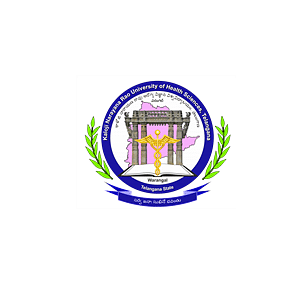Introduction about BA
BA from the best college of India is an undergraduate academic degree awarded to
students who have completed a program of study in the liberal arts, humanities,
social sciences, or certain interdisciplinary fields. The BA degree is one of
the most common undergraduate degrees offered by universities worldwide and
provides a broad foundation of knowledge and skills across various disciplines.
Here's an introduction to the BA degree:
1. Program Structure:
BA programs typically span three to four years of full-time study,
although the duration may vary depending on the country, university, and
specific program requirements.
The curriculum of a BA program includes a diverse range of courses in
disciplines such as literature, history, philosophy, sociology, psychology,
economics, political science, languages, and the arts.
Students have the flexibility to choose courses based on their interests
and academic goals, allowing for a well-rounded education.
2. Emphasis on Liberal Arts and Humanities:
The BA degree emphasizes the liberal arts and humanities, focusing on
critical thinking, analytical reasoning, communication skills, and cultural
awareness.
Students engage with a variety of academic disciplines and explore
complex ideas, diverse perspectives, and cultural traditions.
3. Specializations and Majors:
BA programs often offer a wide range of specializations or majors,
allowing students to focus their studies on specific areas of interest.
Common BA majors include English, history, sociology, psychology,
political science, economics, anthropology, philosophy, linguistics, and fine
arts, among others.
4. Interdisciplinary Opportunities:
Many BA programs encourage interdisciplinary studies, allowing students
to explore connections between different fields of study and integrate knowledge
from multiple disciplines.
Interdisciplinary BA majors or programs may combine elements of the
humanities, social sciences, natural sciences, and professional fields to
address complex societal challenges.
5. Career Preparation:
While BA programs provide a broad-based education rather than
specialized vocational training, they equip students with valuable skills that
are highly sought after in the workforce.
Graduates of BA programs develop strong communication skills, critical
thinking abilities, research proficiency, cultural competence, and
adaptability, making them well-suited for a wide range of career paths.
6. Pathways to Further Education:
Many BA graduates pursue further education or advanced degrees in fields
such as law, business, education, social work, public administration,
journalism, or the arts.
The BA degree serves as a foundation for graduate studies and
professional training in specialized fields, offering diverse pathways for
career advancement and personal growth.
7. Global Recognition:
The BA degree is recognized and valued worldwide for its emphasis on
intellectual inquiry, creativity, and cultural understanding.
Graduates of BA programs contribute to diverse fields and industries,
making meaningful contributions to society as educators, researchers, writers,
policymakers, advocates, entrepreneurs, and leaders.
In summary, the Bachelor of Arts (BA) degree offers students a rich and
comprehensive educational experience that prepares them for success in various
academic, professional, and personal endeavors. Through interdisciplinary
exploration, critical thinking, and engagement with diverse perspectives, BA
graduates are empowered to make a positive impact in their communities and the
world.
How to apply for admission at BA ?
Admission process 2024 at the best BA college involves
several steps, and the specific requirements may vary depending on the
university and country. Here's a general guide on how to apply for a BA
program:
a)
Research Programs: Start by
researching universities or colleges offering BA programs in your field of
interest. Consider factors such as program reputation, faculty expertise,
course offerings, campus facilities, location, and tuition fees.
b)
Check Eligibility: Review
the eligibility criteria for admission provided by the universities. Typically,
applicants need to have completed secondary education (high school or
equivalent) with a certain grade point average (GPA) or equivalent
qualification. Some universities may also have specific subject requirements.
c)
Choose Universities: Select
the universities or colleges where you want to apply based on your preferences
and eligibility. Consider applying to a mix of reach, match, and safety schools
to increase your chances of admission.
d)
Application Form: Obtain
the application form for each university you're applying to. Many universities
allow online applications through their official websites. Fill out the
application form carefully, providing accurate information and ensuring that
you meet all the requirements.
e)
Submit Supporting Documents: Along
with the application form, you'll need to submit supporting documents such as:
f)
Academic transcripts from secondary education
g)
Standardized test scores (if required)
h)
Letters of recommendation (if required)
i)
Personal statement or essay (if required)
j)
Proof of English language proficiency (for
international students)
k)
Application fee (if applicable)
l)
Entrance Exams (if required): Some
universities may require applicants to take standardized entrance exams such as
the SAT (Scholastic Assessment Test) or ACT (American College Testing) for
admission to BA programs. Check the requirements of each university and
register for the exams accordingly.
m)
Personal Statement/Essay: If
required, prepare a personal statement or essay as part of your application.
This is an opportunity to showcase your interests, academic achievements,
extracurricular activities, and career goals.
n)
Letters of Recommendation: If
required, request letters of recommendation from teachers, counsellors, or
other individuals who can speak to your academic abilities and character.
Provide them with sufficient time to write and submit their letters.
o)
Submit Application: Complete
and submit the application form along with all required documents before the
application deadline. Pay any application fees as specified by the university.
p)
Follow Up: After submitting your
application, monitor the application status and check for any updates or
requests for additional information from the university. Respond promptly to
any communications from the admissions office.
q)
Receive Admission Decision: Once the
admissions committee has reviewed your application, you'll receive an admission
decision from each university. If you're accepted, you'll typically receive an
official offer letter outlining the terms of admission.
r)
Acceptance and Enrolment: If you
receive an offer of admission, carefully review the terms and conditions
outlined in the offer letter. Follow the instructions provided by the
university to accept the offer and complete any further enrolment formalities,
such as paying the tuition deposit and registering for classes.
s)
Prepare for Studies: Upon
accepting the offer of admission and completing all enrolment formalities, you
can prepare to start your BA studies at the designated start date. Familiarize
yourself with the program curriculum, connect with academic advisors, and make
any necessary arrangements for accommodation and transportation.
Remember to check the application deadlines and requirements for each
university you're applying to, and ensure that you submit all required
documents accurately and on time. Good luck with your applications!
What is duration of BA ?
The duration of BA from best affordable college in India degree program typically varies depending on
the country, educational system, and specific program requirements. However, in
most cases, a BA program lasts for three to four years of full-time study.
Here's a breakdown of the typical durations for BA programs in different
regions:
United States and Canada:
BA programs in the United States and Canada typically span four years of
full-time study.
Students complete a certain number of credit hours by taking a
combination of general education courses, major courses, and elective courses.
United Kingdom:
In the United Kingdom, BA programs usually last for three years of
full-time study.
The program focuses primarily on the chosen major or discipline, with
fewer general education requirements compared to programs in the United States.
Europe:
BA programs in Europe vary in duration but generally range from three to
four years of full-time study.
The specific duration may depend on the country, university, and program
structure.
Australia and New Zealand:
BA programs in Australia and New Zealand typically span three years of
full-time study.
Some programs may offer the option of completing an additional Honours
year for students who wish to pursue further specialization or research.
India:
In India, BA programs usually last for three years of full-time study.
Students take a combination of core courses, elective courses, and
possibly a specialization in their chosen subject area.
Other Countries:
In other countries, the duration of BA programs may vary but generally
falls within the three to four-year range.
Students should check the specific requirements and duration of BA
programs offered by universities in their respective countries.
It's important to note that the duration of a BA program may also depend
on factors such as the structure of the academic year (e.g., semester system or
trimester system), any breaks or holidays within the academic calendar, and
whether the program includes opportunities for internships, study abroad, or
other experiential learning experiences. Additionally, some universities may
offer accelerated or extended options to accommodate students' needs and
preferences. Prospective students should carefully review the program details
and requirements provided by the universities they are interested in applying
to.
What is syllabus for BA Course ?
The syllabus at best BA University varies significantly depending on factors such as
the university, country, specialization, and individual program requirements.
However, I can provide a general overview of the types of subjects and topics
commonly covered in BA programs across various disciplines. Keep in mind that
this is a broad overview and specific syllabi may differ.
1.
Core Subjects:
English Literature
History
Sociology
Political Science
Economics
Psychology
Philosophy
Anthropology
Geography
Languages (e.g., French, Spanish, German)
2.
General Education Requirements:
Mathematics
Science
Environmental Studies
Computer Applications
Communication Skills
Critical Thinking
Research Methodology
3.
Elective Courses:
Literature: World Literature, British Literature, American Literature,
Comparative Literature
History: Ancient History, Medieval History, Modern History, World
History
Sociology: Sociological Theory, Social Institutions, Sociology of
Gender, Sociology of Culture
Political Science: Political Theory, Comparative Politics, International
Relations, Public Administration
Economics: Microeconomics, Macroeconomics, Development Economics,
Economic Policy
Psychology: Introduction to Psychology, Social Psychology, Cognitive
Psychology, Abnormal Psychology
Philosophy: Introduction to Philosophy, Ethics, Logic, Epistemology,
Metaphysics
Anthropology: Cultural Anthropology, Biological Anthropology,
Archaeology, Anthropological Theory
Geography: Physical Geography, Human Geography, Geographical Information
Systems (GIS), Environmental Geography
4.
Specialization or Concentration Areas:
Depending on the university and program, BA students may have the option
to specialize or concentrate in a particular area of study. Specialization
options may include:
Literature: Poetry, Drama, Fiction, Literary Criticism
History: Regional History, Social History, Economic History
Sociology: Criminology, Urban Sociology, Medical Sociology
Political Science: Public Policy, Comparative Government, Political
Philosophy
Economics: Econometrics, International Economics, Financial Economics
Psychology: Clinical Psychology, Industrial-Organizational Psychology,
Health Psychology
5.
Project Work or Dissertation:
Many BA programs require students to complete a project or dissertation
in their final year. This involves independent research on a topic of interest
under the supervision of a faculty member.












